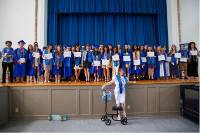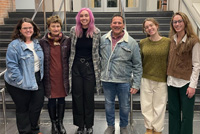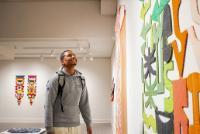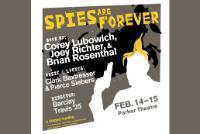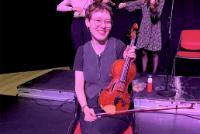The Honors Program seminars change every semester, but most fulfill General Education requirements. Enrollment in Honors seminars is limited to 15 students to ensure direct and regular interaction with professors and engage in active discussion during class sessions.
Spring 2025 Seminars
HON 316 Debates in U.S. History
Instructor: Patricia A. Sullivan (Digital Media & Journalism, Honors)
GE Requirement: US History and Civil Engagement
An exploration of selected and pivotal topics in the history of the United States from the colonial period through today. Politics, economics, society, and culture will be examined focusing on primary source documents and images.
HON 375 Doing Race and Gender
Instructor: Anne Roschelle (Sociology)
GE Requirement: Diversity, Equity, Inclusion & Social Justice
Using feminist and racial-ethnic theories we will analyze how gender, race, and class oppression shape the experiences of women and how we, as agents of social change, can translate these theoretical insights into methodological strategies.
HON 381 Ethical Fashion: Understanding Consumerism, Globalization, Justice & Sustainability Through Textiles
Instructor: Andrea Varga (Theatre Arts)
Utilizing the Global Goals for Sustainable Development as a framework, students will explore textile, dress and adornment history relating practices from prehistory through the present day to our relationship with textiles, consumer behaviors and sustainability. This course will allow students to understand personal choices and behavior (from understanding fibers to personal economics, and social communication, regulations and industry standards) and connect them to the globalized fashion industry. Students will explore the implications of consumer choices on the environment, people, and other living creatures by utilizing research tools and data available through organizations like Fashion Revolution and Good on You. Students will have the opportunity to empower themselves as consumers to have a voice and be a change agent by making informed choices and communicating sustainability norms to the companies that they engage with.
HON 393 Asian American Fiction
Instructor: Nathen Clerici (Languages, Literatures, and Cultures)
This course is designed as an exploration of Asian American fiction. Our objectives will be to study not just the thematic concerns of these works (identity formation, immigration, family structures, racism, queerness, etc.), but the historical and political contexts in which they were produced and how that is evident in the aesthetic choices of the authors. Asian American literature and film have both reflected and produced cultural shifts within the U.S., and the selections in this course will give us a framework by which to examine them. We will approach the material through three thematic units. The first, "Gendered Boundaries," focuses on representations of the masculine and feminine, and will comprise the first half of the course. The second, "Dislocation & Empire," considers the shock of moving—or being moved—from one place to another and the effect this can have on identity formation. In the third, "Discovery," we look at the ways in which youth and family serve as the backdrop for thinking about Asian American life. There will be overlap between these units, but this structure will be useful for focusing our inquiries within each one. Finding connections between works and authors is encouraged.
HON 393 Exploration in Composition and Sound
Instructor: Phyllis Chen (Music)
Students explore the art of music composition through studying the philosophies and techniques of American experimental musicians from the 1960's forward. Students will investigate non-traditional methods of performance and music-making through text scores, graphic notation, altered found instruments, field recordings, and improvisation.
HON 393 Thinking Through Drawing: Creative Inquiry and Visual Communication Across Disciplines
Instructor: Andrea Kantrowitz (Art Department)
This seminar explores drawing as a tool for creative inquiry across disciplines. Through hands-on exercises, critical discussions, and interdisciplinary projects, students will learn to use drawing to visualize ideas, analyze complex systems, and foster innovation. Drawing can be a powerful tool of thought in art, design, science, engineering, humanities and social sciences.
HON 393 Trauma at the Museum
Instructor: Amy Nitza (Institute for Disaster Mental Health)
In this course, students will take a multidisciplinary look at museums and the way they tell traumatic stories and cope with traumatic content. The course will incorporate the new Emmett Till exhibit at the National Museum of American History as a through line and will be co-taught by the Institute for Disaster Mental Health at SUNY New Paltz and the National Museum of American History of the Smithsonian. One weekend will be dedicated to a field trip to some of the museums in New York City to explore in person how they manage these important issues.
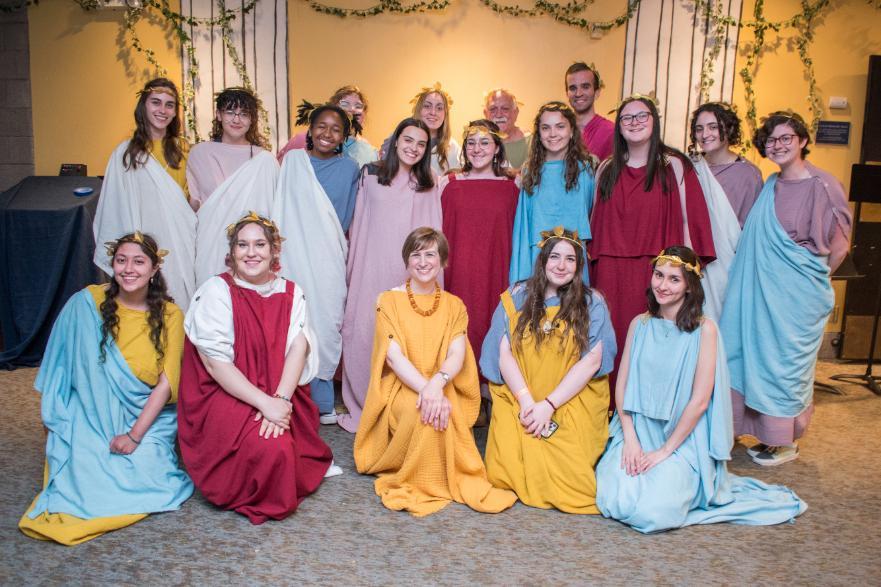
Fall 2024 Seminars
HON 201 The Individual and Society
Instructors: Thomas Festa (English), Madeleine Arseneault (Philosophy), Hamilton Stapell (History), Patricia A. Sullivan (Digital Media & Journalism, Honors), & Vicki Tromanhauser (English)
GE Requirement: Humanities (HUM)
Investigates the relationship between the individual and society through discussion of the philosophic, literary, and historical aspects of major texts.
HON374 The Materials of History, Thought, and Art
Instructor: Cyrus Mulready (English)
GE Requirement: World History and Global Awareness
An interdisciplinary seminar in material cultural studies, this course examines how human interactions with objects and the learned environment have shaped culture and intellectual endeavor through time.
HON 382 Introduction to Sustainability
Instructor: Andrea Varga (Theatre Arts)
Introduction to Sustainability Seminar: An exploration of regenerative, just, and sustainable strategies for the environment and society: Utilizing the United Nations Global Goals for Sustainable Development students will examine the three pillars of sustainability - environment, society, economics - to promote and practice regenerative, just and transformative solutions for contemporary challenges as global citizens. Students will explore how today’s human societies can endure and build healthier systems in the face of global change, ecosystem degradation and resource limitations. Cross-disciplinary study and perspectives will be utilized to promote systems-thinking and understanding.
HON383 Human Ecology: Humans and Nature in a New Millennium
Instructor: Eric Keeling (Biology)
GE Requirement: Natural Science
In this course, students will combine scientific knowledge and methods, field experiences, philosophical arguments, social theories, and their own disciplinary expertise and creativity to explore contemporary and perennial questions about humans and nature.
HON393 Culture Jamming
Instructor: Megan Sperry (Digital Media & Journalism)
In this course students will be asked to think critically about the messages that are being portrayed in popular media. The course will draw attention to the power of media, and its influence on society, particularly to our values and personal views surrounding consumerism. Students will be asked to produce creative projects that illustrate their understanding of media literacy and ethics.
